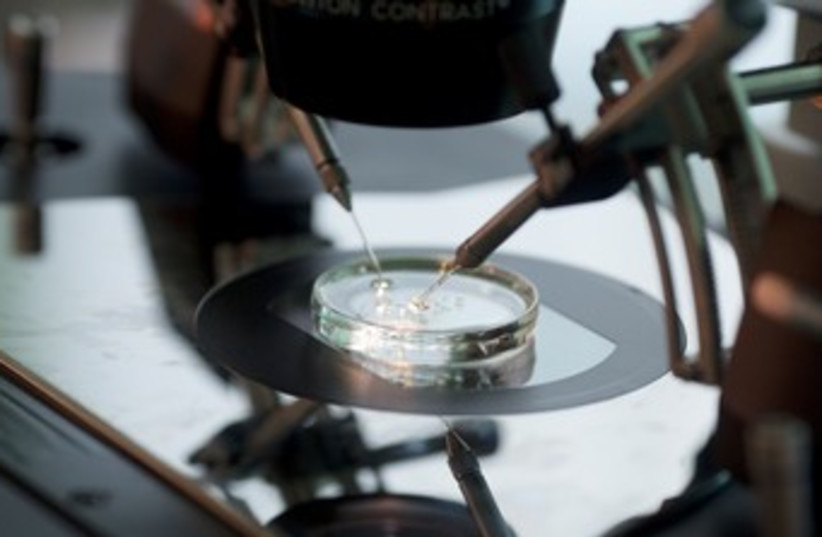Scientists created synthetic human fetuses using stem cells in a groundbreaking step that circumvents the need for an egg or sperm.
The scientists said that these fetuses, which are like fetuses in the earliest stages of human development, can teach about the effect of genetic disorders and biological causes of recurring miscarriages. Still, their existence raises serious ethical and legal issues because there is no legislation regarding the entities that were grown in a lab in most of the world's countries currently.
It's important to note that the fetuses have no beating heart or the beginning of a brain, but they do include the cells that generally would go on to create the placenta and the baby itself.
Prof. Magdalena Zernicka-Goetz from Cambridge and the Technological Institute of California described the work on Wednesday at the annual meeting of the International Association of Stem Cell Research in Boston.
There is no chance in the near future of using synthetic fetuses clinically, however. It would be illegal to implant them in a patient's womb, and it's still unclear if these creations have the potential to continue to mature beyond the earliest development stages.

In the past, Zernicka-Goetz's team showed that it's possible to encourage stem cells from mice to gather themselves into models of fetuses with intestinal systems, the beginning of brains and beating hearts. Since then, a race was run to translate that work into human models, and a number of teams succeeded in reproducing the earliest stages of development.
Will this fetus grow into a living being?
The model structures, each of which grew from a single fetal stem cell, reached the beginning of development called gastrulation where the embryo changes from being a continuous sheet of cells to forming separate cell rows and establishing the basic axes of the body. At this stage, the fetus doesn't have a beating heart, intestines or even the beginning of a brain, but the model showed the presence of primary cells that are the precursor cells of the egg and sperm.
"Our human model is the first model of human fetuses that specifies amniotic fluids and germination cells, the precursor cells to the egg and the sperm," Zernicka-Goetz told The Guardian before the lecture. "It is entirely made of fetal stem cells."
"What they've actually done here is take fetal stem cells with no identity which can be sorted in any direction you want to theoretically grow any organ you want," explained Prof. Benjamin Dekel, the manager of the Sagol Center for Regenerative Medicine in Tel Aviv University. "In the development of a fetus, there are three germination layers. Here, they took it one step forward to the stage where there is actually a sort of fetus in the petri dish. And each time, they take it one more step forward with far-reaching consequences."
The development comes with ethical and moral questions
Indeed, the new development of course raises ethical and moral questions that humanity needs to deal with now and in the future.
"It's difficult to imitate nature, and the question is whether this is a real fetus or cells arranged sort of like a fetus."
Prof. Benjamin Dekel
"If the intention is that these models are very similar to normal fetuses, then in some way, they need to be treated as such," said the researchers. "Right now, they are not being legislation. People are worried about it."
"There are a few problems here," said Dekel. "The main problem is how similar are the tissues created outside the bodies to the real fetus. It's difficult to imitate nature, and the question is whether this is a real fetus or cells arranged sort of like a fetus. And of course, there are major ethical consequences here."
On the other hand, Dekel said that "if we have synthetic fetuses, we can learn more about sicknesses in the fetal life. We can open a whole world of teaching about sicknesses that develop in fetal life or birth defects. We've never had these kinds of model systems, but again, we don't know how similar it is to the real thing. There's a difference when you grow something outside of the body in a tube and you try to imitate a process that developed over millions of years of evolution. That's why there's an argument about how similar it is to the real thing."
